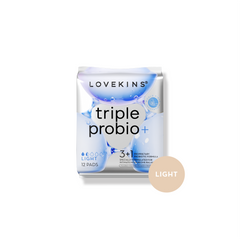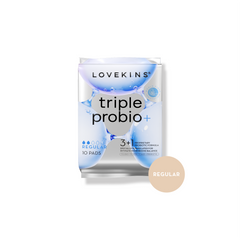A birth partner is a crucial support throughout labour and birth. They should be someone you trust, who will advocate for you, provide you with physical and emotional support, and be prepared to do whatever it takes during your labour and birth. A birth partner doesn’t have to be your partner, husband or wife; they can be anyone you want present at this special time. You can also have multiple people to support you during this process. The World Health Organisation (WHO) recommendations for a positive birth includes having a companion chosen by the woman present to provide continuous support during labour and childbirth. WHO research states there is moderate evidence to suggest a companion or birth partner present during labour and birth reduces the length of labour, and improves the birth experience described by the mother. Your birth partner could include - your sister, mother, friend, mother-in-law, or a professional such as a doula or midwife. It should always be someone you feel comfortable with during vulnerable moments, who you know will support, care for, and encourage you.

An essential discussion with your birth partner, is how you would like them to support you in labour. Attending antenatal classes and creating your birth preferences together will ensure you are both on the same page and know your expectations for labour and birth.
If you are giving birth in a hospital, it’s a good idea to ask the hospital how many support people you can have in the delivery room. Too many people in the room can be a distraction and overwhelming for you, so think about one or two people that you trust and feel comfortable with. If you are having a C-section, typically only one person is allowed in theatre for the procedure. If you are having a home birth, you will have flexibility and control over whoever you want present in your environment.
Points for your birth partner
Being a woman’s birth partner is a huge responsibility but also very rewarding. Labour and birth are often a life-altering process not just for the birthing mama, but the birth partner as well.
These seven points outline common roles as a birth partner:
- Be there and provide company: Continuous presence and support are important for a positive birth experience while helping mama with whatever she needs at any given time. Company is what she will need through labour, especially in the early labour when it may be slow to start, or she may feel tired. Listen to what she needs on the day, remembering her needs may change as labour progresses.
- Encourage and motivate: Words are powerful, encourage the mama-to-be and tell her that she is doing an amazing job. Providing positive words to motivate her when she feels like giving up, such as ‘this contraction means you are one closer to meeting your baby’. Being confident in a women’s ability to give birth and telling her she can do it, will encourage and support her.
- Advocate: Advocating for the mother-to-be involves putting her case forward on her behalf and publicly supporting her choices. There may be a need to communicate with the midwife and healthcare professionals on her behalf if she wants, or if she cannot make the decision at that moment. The birth partner will know the birth preferences, standing up for her requests and expressing any preferences on her behalf is a huge role.

- Emotional support: Show the mama-to-be love and affection throughout labour (if this is appropriate). This will help her brain to release the love-making hormone oxytocin, which increases the strength and regularity of contractions to help labour progress. The birth partner can provide comfort, reassurance and encouragement, hold her hand or just be present, depending on what she needs at the time. They can also guide the mamas breathing and use calming techniques; relaxation will also promote oxytocin production.
- Practical support: Practical support involves everything from driving to hospital and carrying bags to helping set up the birth space and providing hands-on physical support in labour. This includes holding and supporting her weight if she needs it, helping her into positions where she feels comfortable and giving her a massage (shoulders, lower back and calves are great spots to help relaxation). Using a beautiful, natural oil such as Lovekins Stretch Mark Oilwhich is packed with natural goodness is a great idea.Many mamas in labour enjoy their lower backs being massaged or counter-pressure applied during contractions. The calming Lavender scent inLovekins Stretch Mark Oil may also help to relax everyone in the room. Other ways of practical support for the birth partner, are to be in the shower or bath with mama, provide her with snacks and fluids regularly throughout labour and reaffirming positive affirmations. Some women in labour also wish to be alone, not touched or in complete silence, this is okay too and every woman births differently.

- Be flexible: Everything may go to plan, but birth can be largely unpredictable. A medical situation may arise which alters the course of labour. Although the birth partner and mama, will both prepare for as much as they can, sometimes adapting to whatever is or is not working during labour and birth is essential. Labour might take time, or things may move very quickly, having a flexible and adaptive birthing partner is key.
- Look after yourself too: Being a birth partner may be exhausting and emotionally draining, especially if it is a long or traumatic labour or birth. It’s important that the birth partner also looks after themselves, as well as the mama-to-be. When it is appropriate, they can take regular breaks, step out of the room or tag team with someone else to be present if needed. Some great things for a birth partner to include in their hospital bag includes: snacks, comfortable shoes, a change of clothes, and swimwear if they plan to go in the pool or shower as support.
Birth partners can also chat with the midwife or health professional, after the birth and debrief about their experience.
Blog is written by Midwife Aliza Carr from Bumpnbub.













